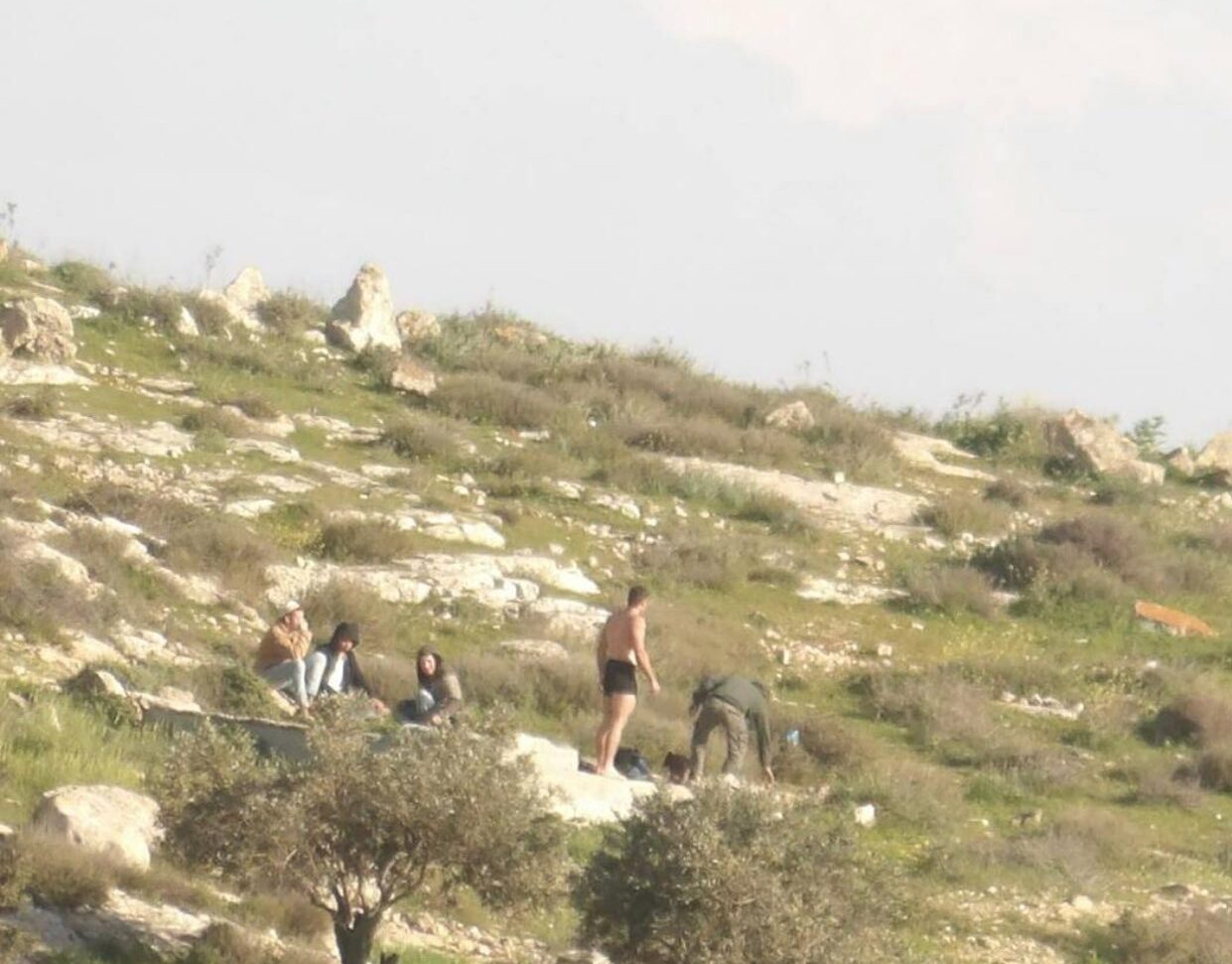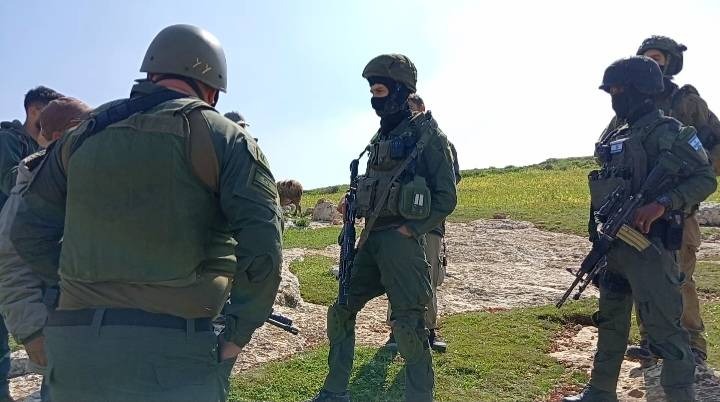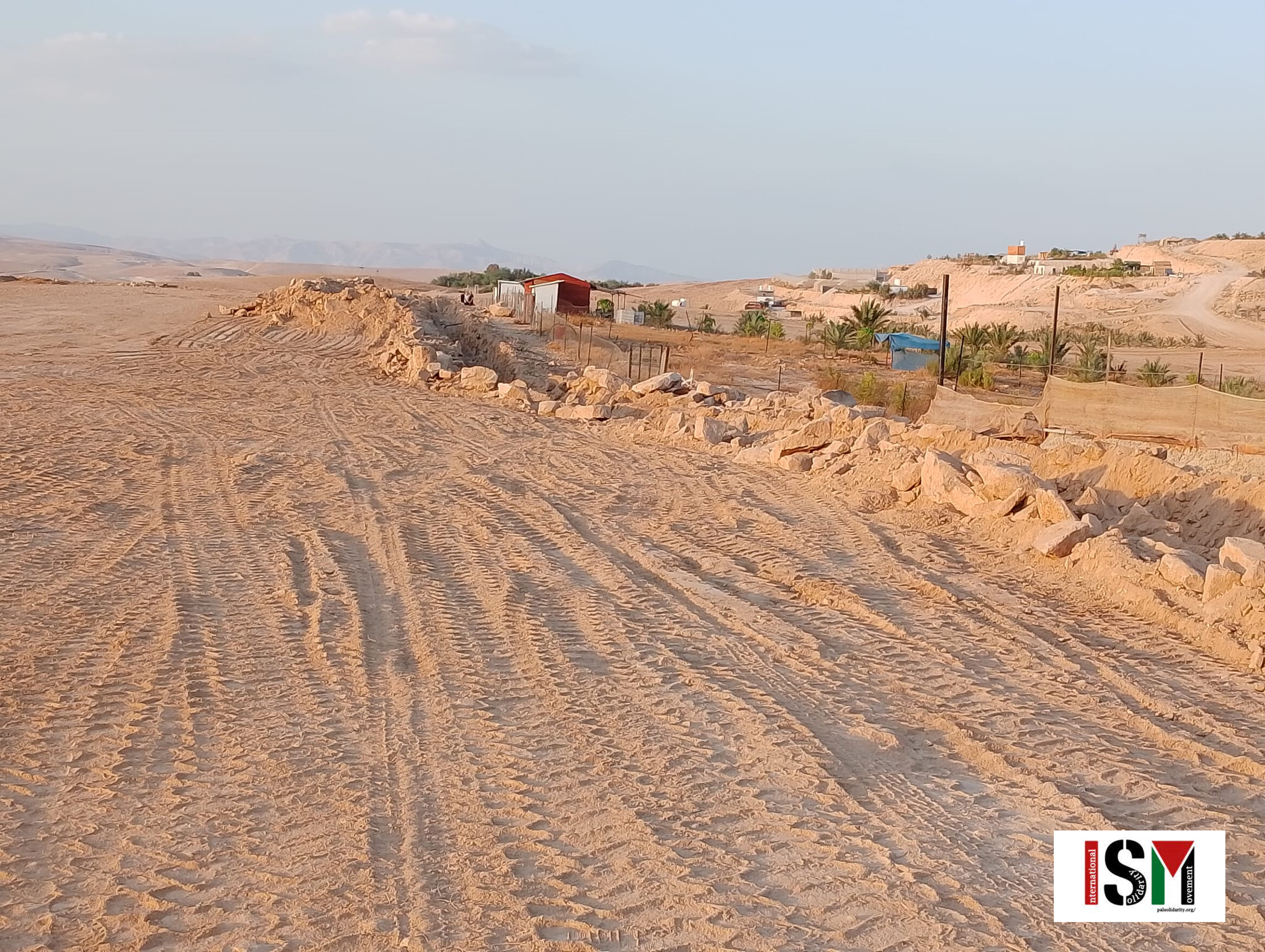Tag: illegal settlers
-

The Many Faces of Ethnic Cleansing and Land Grab
06 March 2024 | International Solidarity Movement | Masafer Yatta A few days ago, villagers of Khallet Adabaa stood at the edge of their village and watched two illegal Israeli settlers driving on motorbikes up and down the hills surrounding the village – all of it private Palestinian land. Earlier in the day, settlers…
-

Illegal Occupation and Power Abuse by Israeli Settlers in Masafer Yatta
27 February 2024 | International Solidarity Movement | Masafer Yatta On February 25th, armed illegal Israeli settlers and border police approached and violently argued with Palestinian shepherds in Al-Rakeez, Masafer Yatta, driving them away from their land. Two Palestinian shepherds were grazing their flocks at the top of a hill, where they have been recently…
-

Land injustice in the Jordan Valley and a call for action
21 October, 2023 | International Solidarity Movement | Jordan Valley The ISM visited the land of Ahmed, a resident of the Jordan Valley. Ahmed’s land falls in both Area A (under the Palestinian Authority control) and Area C (under civil and military Israeli occupation). He has a house and palm plantations on the “A side”,…
